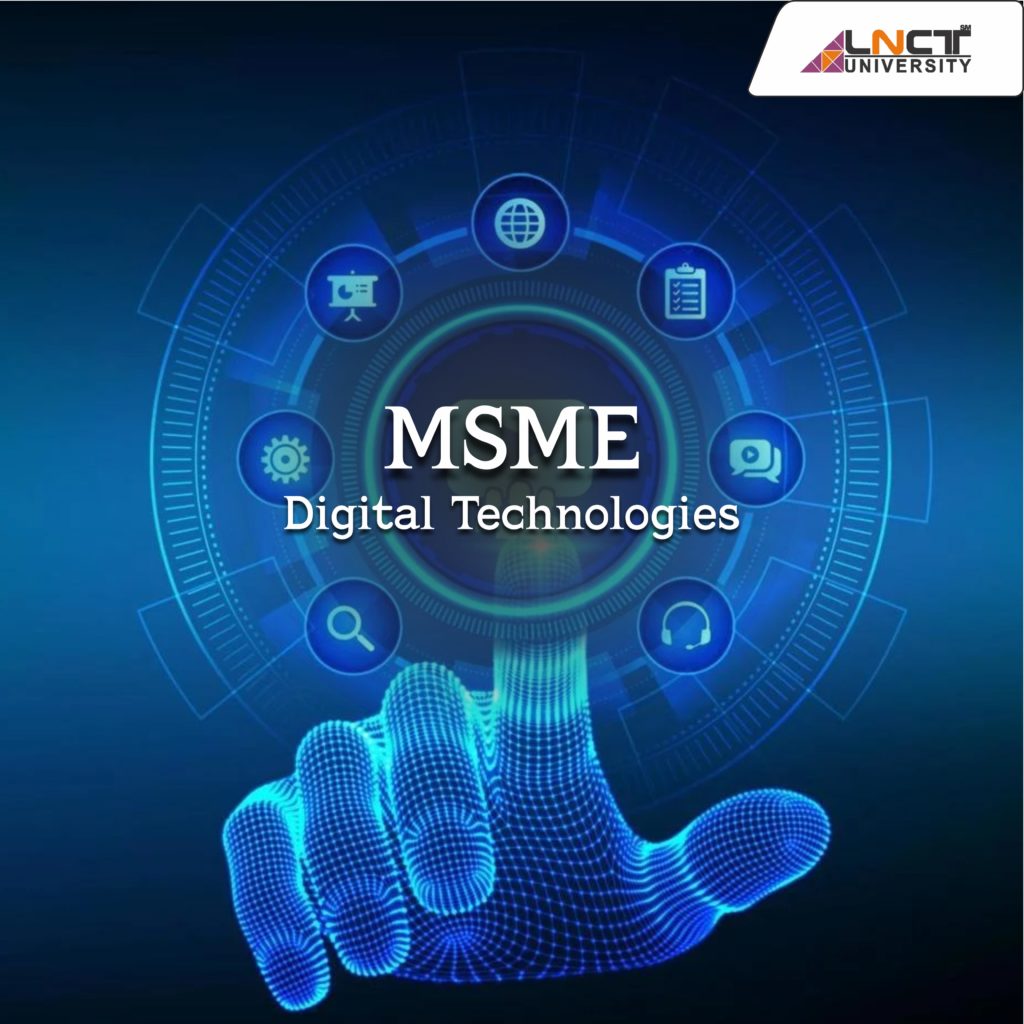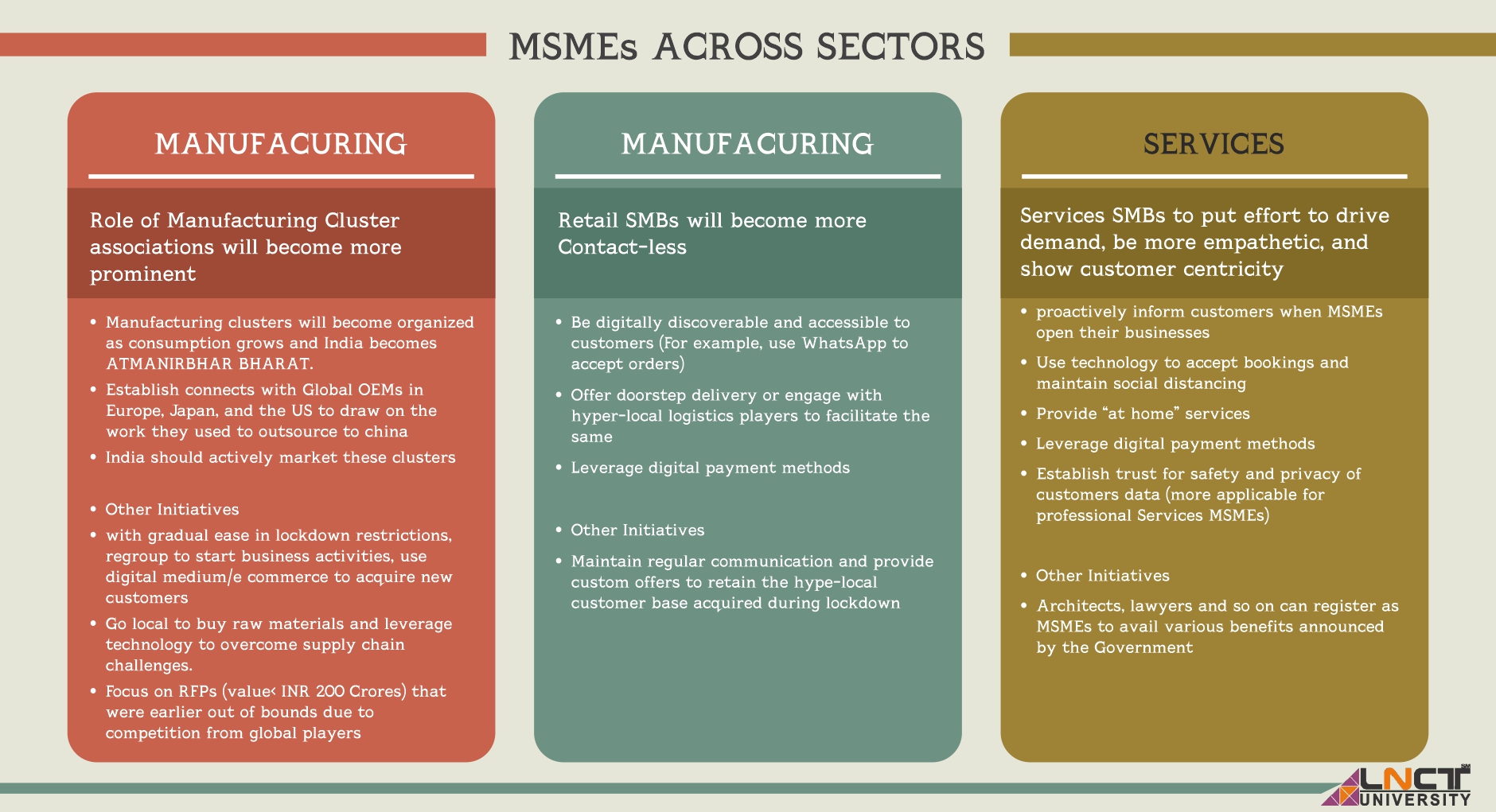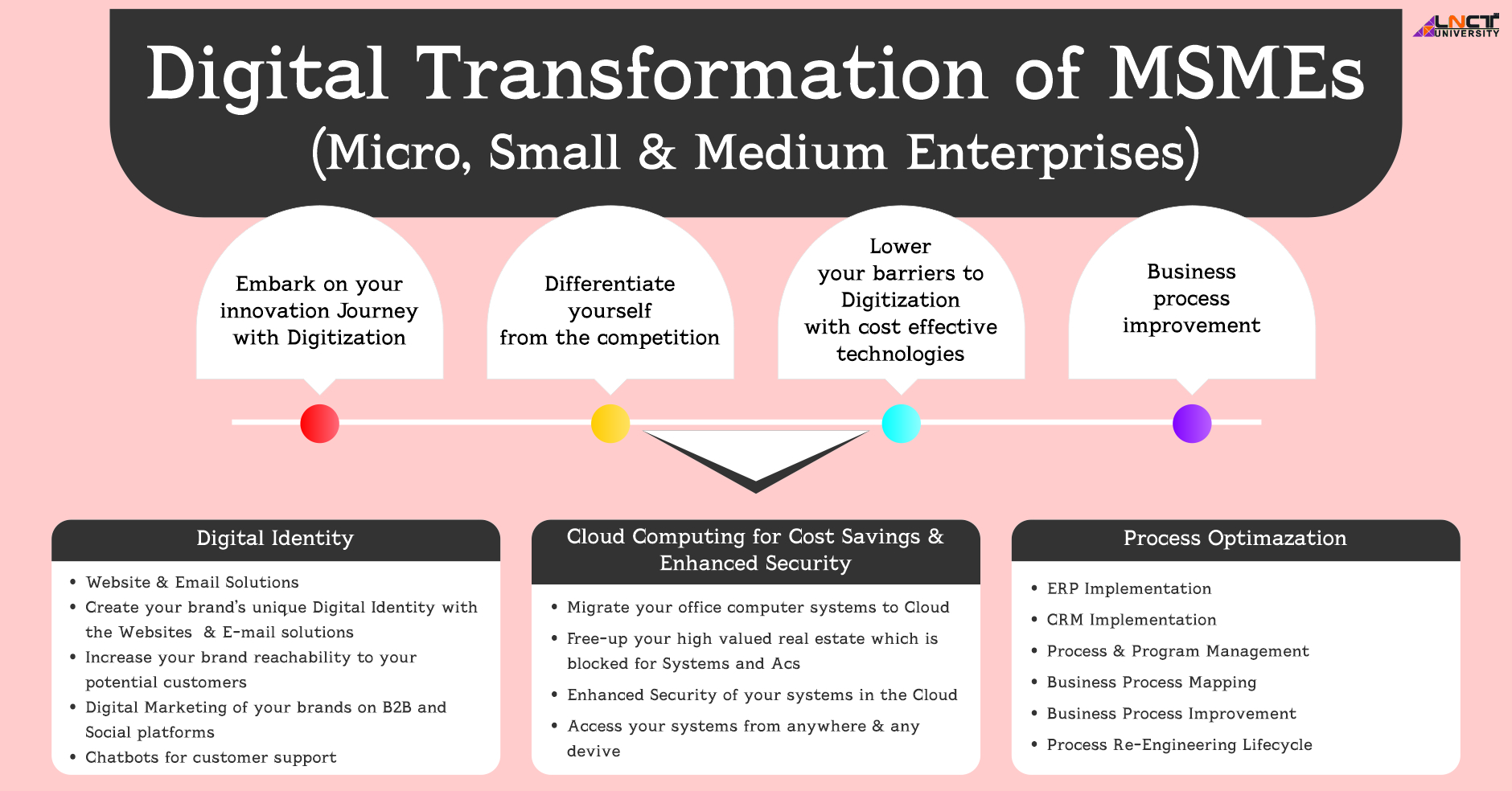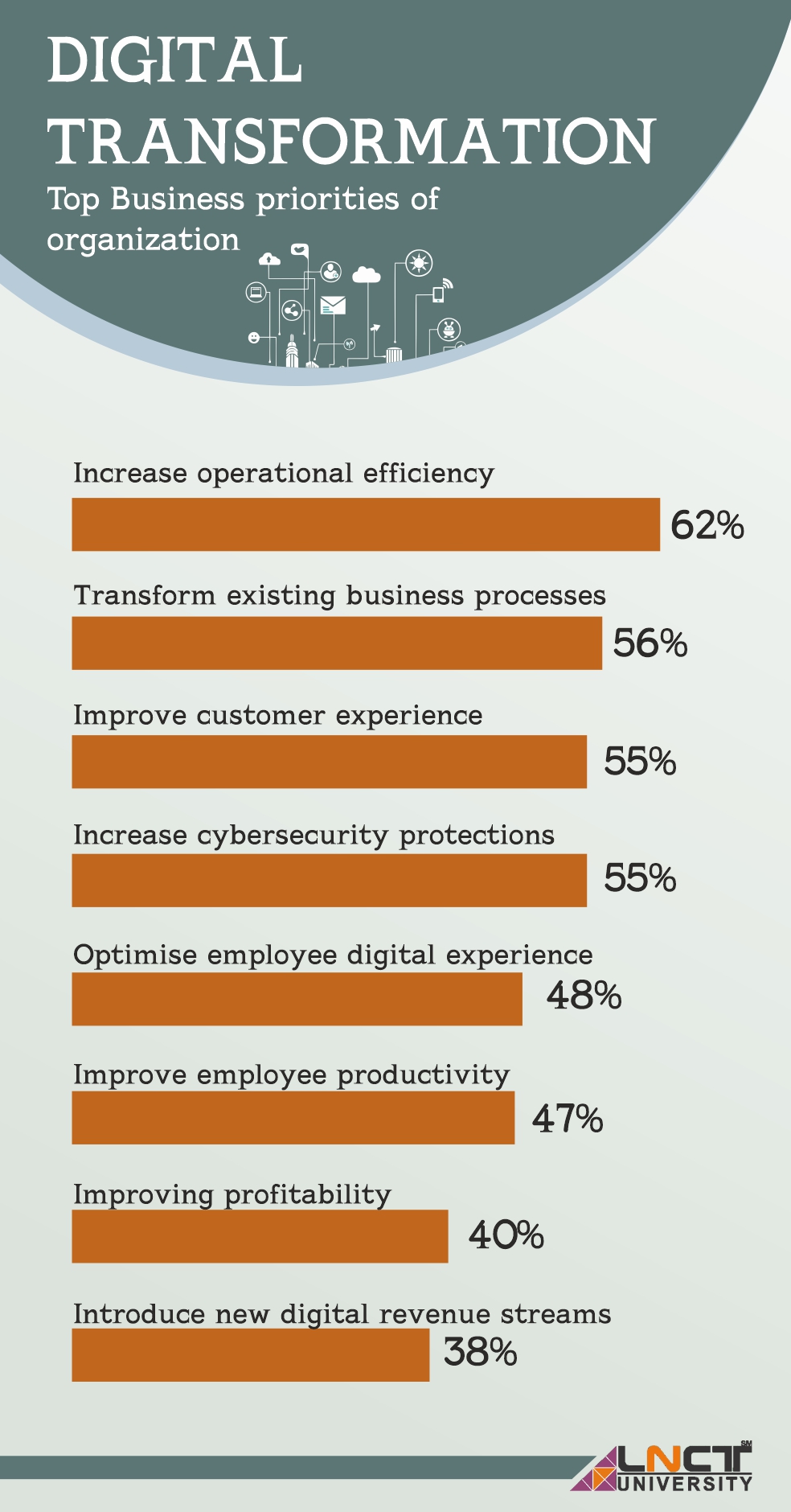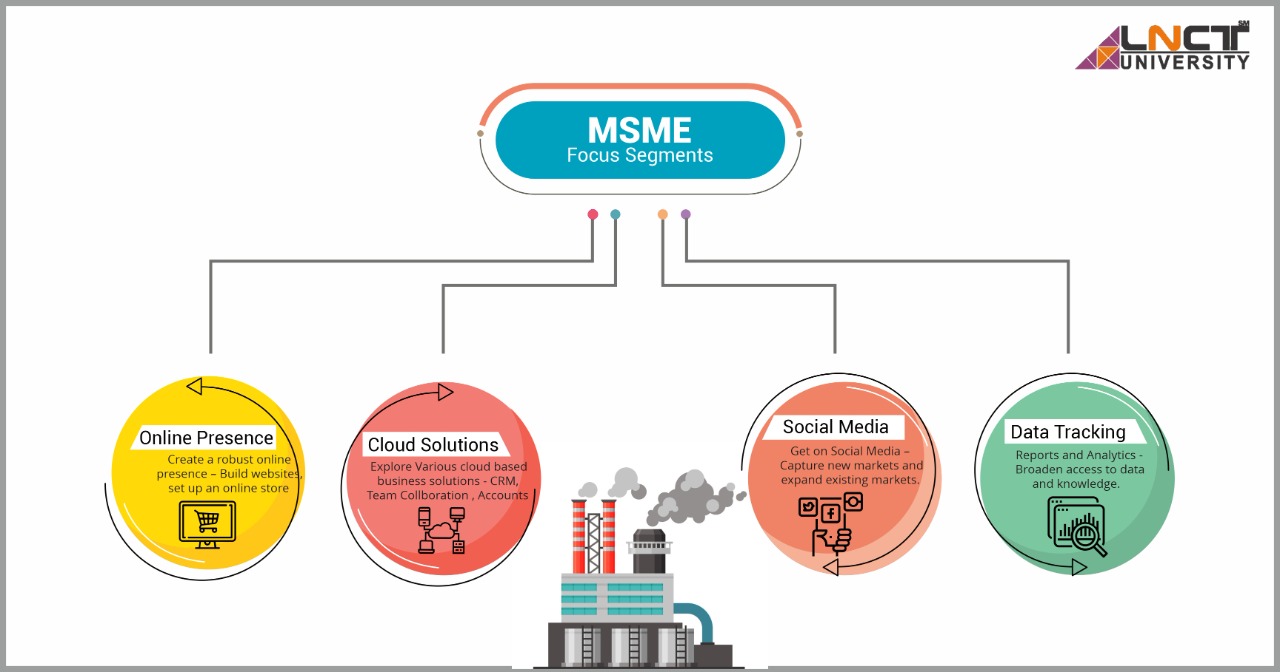Digitization Of Smes in India
The Indian Government introduced MSME in accordance with the Medium Enterprises Development Act 2006. These primarily, majorly engage in the manufacturing and processing of commodities and goods.
MSME stands for ‘Micro Small and Medium Enterprise’, contributes almost 8% to the Indian GDP, along with country exports and manufacturing outputs, the MSME is sometimes referred as the ‘Backbone of the Country’.
Yes Bank recently published a survey that highlighted the important points that could potentially help in the digitalization of MSME in India. According to reports some 3000 Micro, Small and Medium Enterprises were covered, making the report valid to the ground level.
After the demonetization in India, a certain wave has swept over businesses that have made discussions about operating a business online a primary necessity. The survey highlighted staggering numbers that even though around 60 % of MSME businesses operate fully online, only as less as 5 % businesses could mark an online presence and get engagement.
The lack of basic digital knowledge and the ability to carry out simple operations and functions effectively is one of the biggest roadblocks in the path of Digitization Of Smes.
Users find trouble creating an online store or website in the correct manner. To overcome this, many skilled individuals are needed who can effectively navigate through cyberspace and creating a booming business.
5 Reasons Why Digitization Of Smes Is A Must
-
Enhanced Customer Acquisition
-
Operational Efficiency & Workforce Enhancement
-
Risk Management & Improves Productivity
-
Innovation
-
Saves Costs & Reduces Manpower
In this increasing world of digitalization where people are rapidly abandoning remote practices and indulging in new ways to create revenue, it is the duty of the government and administration with the help of organizations to educate people in this field and prevent every possible obstacle from their way, in order to help them to sustain and grow in the market through their business and services.
Major stakeholders who play a great deal of role in promoting this include government, technology industry, MSMEs and academia that work on the principle of shared objective that ensures digital penetration on a more accelerated and regular basis.
MSMEs are one of the most important sectors that effectively contribute to the socio-economic status of the country and in many ways plan to enhance it.
According to a report published by the Government, there are up to 6,08,41,245 recognized all over India in the year 2018-19, which are sure to have gone up in recent times. MSMEs create a lot of employment opportunities in both small and large sectors. It is, by all means, the responsibility of the government to invest heavily in these industries and generate better profits.
The paper goes on to discuss the importance of digitalization in the coming times and the role of government in the process. It is the need of the hour to deal with the changing trends of the coming digitalized world. It is only through proper education and awareness of digital assets can the industry hope to navigate through cyber space and function properly penetrating digital space. It is important for people to understand the immense power that networking and technology have, which can be effectively channelized in creating better services and revenue.
What are SMEs & Why Digitization Of Smes is Important?
The Micro, Small and Medium Enterprise is an initiative undertaken by the government of India and assist small business in order to generate better revenue, which in turn will greatly contribute to the Gross Domestic Production (GDP) of the country.
In a recent report published, currently the SMEs contribute up to 5 % to the country’s GDP, which is predicted to grow by 2 % and reach a total of 7%, if the market is effectively digitalized and if effectively functioning in online platforms. The industries are divided as such based on the investment and the annual turnover.
The following table attempts to understand this classification
| Classification | Micro | Small | Medium |
| Manufacturing Unit, Enterprise or services. | Investment in a micro plant is less than or equal to 1 crore, including machinery and plant which produces an annual turnover of up to 5 crores. | Investment in small business and services, demands an investment including equipment and machinery of less or up to 10 crores, which in turn produces an annual turnover of 50 crores. | Investments in medium plants are up to a total of 50 crores, including both equipment and machinery, and an annual turnover of up to 250 crores. |
These three classifications constitute within themselves a number of industries and services. This reclassification came into being, in the year 2006. The new ‘AtmaNirbhar Bharat Abhiyan’ or ‘Self-reliant India’ have given new meaning to the MSMEs across the nation.
In order to make India self-reliant, the government is actively investing in these businesses and aims to utilize their produce natively, so as to save the nation from importing foreign goods. It is the need of the hour, to readily invest and encourage these businesses in order to generate a higher GDP and to make India self-reliant.
The government is readily taking action in this direction, in order to promote individuals owning small businesses and encouraging them to pursue the same, as it generates dual benefits of generously contributing to the nation’s GDP and making the country self-reliant.
The government has taken many steps to ensure this, some of which are as follows,
- The government has created a particular provision of providing collateral free loan to MSMEs, too protect them from financial stress and spare them the problems associated with capital and only focus on generating better goods and commodities.
- The government also offers a Moratorium period of 12 months to MSMEs.
- The government has gone forward and is now considering the Service and Manufacturing as the same entities.
- The reclassification undertaken in the year 2006 is expected to profit approximately 45 lac units.
- MSMEs are now assured full credit guarantee up to 100 %.
- To make the services beneficial and shield them from financial pressures, MSMEs get a repayment period of 48 months.
MSMEs are greatly important, for the GDP of the county and actively contribute to generating better revenue and returns by providing goods, services and commodities. These work for the welfare of the artisans and fellow workers by creating ample employment opportunities and jobs.
MSMEs further go on to provide loans, and funding support to the banks as well as provides other services as well. MSMEs play an important role in the development and promotion of entrepreneurship and play an important role in enhancing skills and upgrading them by setting up a large number of training centres for specific skills in regular intervals of time.
They provide assistance for both the domestic and export market. They support people by teaching them the advancements of technology and various infrastructures, and on a larger perspective assist in the modernization and development of the whole sector.
Along with manufacturing and services, MSMEs are now following the latest new trends and are now actively involved in other fields as well, for instance, intervention, design innovation, packaging and product development.
MSMEs are now playing a major role in all the sectors of manufacturing and services so as to make India self-reliant as quickly and efficiently as possible. The essential role that MSMEs play, surely make them the ‘backbone of the country’ in many ways. All these aspects will come into play at large will create a greater impact when they are digitalized in the coming years.
The demonetization and rapid digitalization of the world in the current times have now highlighted this need. The technological advancements and digitalization have shown impact in almost every sector and market around the globe, and therefore MSMEs too, in order to sustain must be tech-savvy and digitally friendly.
Digitization Of Smes
In a recent interview, our ‘Micro Small and Medium Enterprise’ minister Mr. Nitin Gadkari highlighted the importance of digitalization in the sector. MSMEs contribute greatly contribute to the GDP and up to 48% of total exports.
The government is now implementing various plans and schemes to achieve this. Digitalization is one such important step that has to be taken in this direction for the development of MSMEs in India. Gadkari has urged experts to find new, better and ‘common solutions’ to tackle this problem.
“The system in which we are implementing our schemes, there are a lot of delays and red-tapism. So digitalization is a solution by which we can make this transparent, time-bound, and result-oriented”, the Minister said. Digitalization has now become crucial to every industry, business or trade, and therefore the administration is now meticulously planning to digitalize the sector of MSME.
Gadkari pointed out in the conference ‘The Key for MSMEs’ Rise to Resilience’, the importance of effective marketing techniques and the correct and effective ways of its implementation in order to boost revenue by citing the instances of Amazon and Alibaba.
The Minister urged local experts to find common and easily implementable solutions through software and technology. “Companies like Amazon and Alibaba are doing great in the market. E- market is the future of India and many companies are also doing excellent business. MSMEs need to take help of digitalization in marketing, manufacturing and government systems”, Gadkari said.
E- Market is the future of the country and it is by understanding the changing trends of the e-market we could hope to flourish in the field. It is also important to learn from the leading tech giants that set up these trends and efficiently manage to navigate these paths.
Gadkari, points out how Amazon digitalized almost up to 2.5 million MSMEs and was up to create up to 1million jobs alone in India. The minister urges domestic experts to understand the importance of digitalization and the massive role it plays in creating multitudes of job opportunities.
In the interview, Gadkari pointed out the transformative and lasting effective changes that have been bought at the rural village level, with the help of these MSMEs and with the adaption of new technologies. He clearly pointed out the differences between, ‘Westernization’ and ‘Modernization’ and reflected talked about the plan of the government to not ‘urbanize’ but ‘modernize’ these villages and their small industries in order to keep up with the demands of the global market, this modernization will, by all means, contribute to the socio-economic transformation, which is the need of the hour during these times.
Digitalization will assist in promoting business of these micro, small and medium enterprises and allow them to connect and interact in an active and better manner with their customers all around the world. Another advantage of this digitalization is that it will easily keep tracks of all online transactions and sell products without any difficulties and cater to a large number of target audiences.
With these added benefits, it will essentially become much easy for investors to invest in the business and services. The Vibrant Gujarat Summit of 2019, was a landmark moment for the future of MSMEs in the country, where many companies signed over up to 21, 000 MoUs in the sector of MSME.
In another study, it has been predicted that India will overtake the UK in short time which the fifth biggest economy in the world. The major goal with regard to the sector is to mould a strong base and digitalization of the entire sector. The process forces the government administration, bank and investors, corporate and technological providers to work in unison in generating increased revenue from the MSMEs along with a lower rate of risk and reduced cost in the market.
Implementation of Digitization Of Smes schemes
Implementation of these policies is the next crucial step in capturing the key trends of the digital market. Many online platforms and applications have made the task easy and possible.
The Government of India has started many initiatives in order to implement these policies such as the ‘Skill India, Startup India and Digital India’. The government by these initiatives is delivering assistance and services to small business in order for them to flourish.
According to various reports published, it can be actively seen that the MSMEs have already started undergoing these transitional changes.
In order for these practices to show effects it is important for business owners to take their MSME online. They must understand and behold within themselves the adaptive powers to cope with the changing trends of the market.
It is only with the possession of suck adaptive skills they could hope for their small business to sustain in the changing wave without any major loss. Sustainability has now become an important aspect in the development and progress of any business. With the help of the internet and cyber space one can learn and make themselves aware of the changing trends and grow in these increasingly changing times of digitalization.
It is only by the correct implementation of these various schemes, by the active participation of the government authorities, stakeholders, administration and financial investors could the sector of MSME witness a radical and tectonic change which is for the time increasingly essential in the tech-savvy and digitally optimised world.
Digitization Of Smes: The Drift in Economy
The segment of MSMEs has proven to be very dynamic for the Indian economy. The MSMEs produce a large number of goods and commodities for both the international and domestic markets. In India, they have helped in promoting the domestic sector of Khadi and coir industries along with many other small businesses and services. The MSMEs work and collaborate with respective ministries and stakeholders for the betterment and promotion of rural areas and small industries.
The most primary of all is the essential role that SMEs play is the creation of new job opportunities and employment. Employment is the deciding factor that makes SMEs so very important both for the general public and the government as well.
MSMEs have contributed greatly to the industrialization of rural areas. And on the larger perspective, it can be collectively agreed that, unlike large scale industries, MSMEs largely contribute to the socio-economic development of the nation.
The low cost of investment, affordable rates of interest, flexibility and mobility all contribute to a high contribution to Gross Domestic Production. MSMEs essentially have the capacity to develop manifolds in a short amount of time, with the proper implementation and application of technological and scientific advancements, and can give fierce competition to native and international markets.
MSMEs aim to and produces efficient entrepreneurs at the domestic level and then go on to effectively work in accordance with them by providing certain skill enhancements and training sessions regularly. All around the world the MSMEs are regarded as one of the major contributing factors to economic growth and for promoting development.
In India especially SMEs have driven the nation to new and greater heights by the means of the low cost of investment, the ability to develop and operate appropriate native technology and by the means of flexible operations. In India, the SMEs employ over 120 million individuals, making it the second highest after agriculture.
With both its manufacturing and service sectors, the MSMEs greatly contribute to the GDP of the country. The next big aim of the MSME Ministry is to increase its contribution to the nation’s GDP by up to a total of 50% in the coming 5 years, as India aims to become ‘Atma Nirbhar’ or ‘self-reliant’ and moves forward to become an economy of 5 trillion $.
The industry aims to promote innovation and invention, and in this manner provides ample amount of opportunities for budding engineers, which in turn increases the chances of boosting revenue and competition in the business world.
MSMEs in cities also create employment opportunities in the banking services and production sector. An all-inclusive growth is provided by the MSMEs as they create employment opportunities for people, especially to those who belong to the weaker section of the society.
In these manners, it can be collectively agreed that SMEs provide latent support in the nation’s GDP and even work in order to promote and enhance it. India is moving towards a bigger and better global economy effectively with the support of these MSMEs.
Any individual or entrepreneur who wishes to register themselves to avail the benefits of MSMEs provided by the government can easily register themselves and get the process going. With proper implementation of government schemes and plans, MSMEs will greatly contribute to the development of the nation.
Conclusion
The Coronavirus pandemic and the nationwide lockdown have highlighted the importance of digitalization of the MSMEs. Industries and services which did not penetrate the cyber space have been greatly affected in the pandemic.
On the other hand, services that had an online presence found it easy to connect to the consumer and sustain in this crisis. As physical meetings and interactions have ceased to be the norm of the current world, the only to navigate through the crisis is by cyber space. Digital communication channels, sales and services have now occupied the foreground of the sector.
Various MSMEs and Startups, with the help of government aid, can make increasingly better decisions and continue to sustain via the help of data analytics and experienced professionals with the help of whose insights these businesses can foresee the possible future and take necessary steps and measure to sustain in the changing times.
The limited growth capital of the SMEs although makes the adoption of technology a possible problem, but with the help of appropriate aid a digital ecosystem can thus be created that can facilitate the stores and support them.
For instance, small grocery stores if they penetrate the cyberspace have more chances of sustaining in the future. These e-stores will surely make an impact and facilitate business through all kinds of online platforms, which will make it easier and efficient for them to reach the customers and grow their target audience.
Tech giants along with the government are now actively involved in creating exclusive and specific tools that will contribute to supporting these small businesses and enterprises and enhance their business in terms of profitability and proficiency.
One of the best instances of the same can be through the Google Advantage initiative by Google India that facilitates these small, micro and medium enterprises in building their clientele and growing online. Google My Business, on the other hand, support start-ups and helps them to grow in the digital space.
In the current times, any work big or small is easier to accomplish with the help of technology. The Corona Virus crisis, the worldwide lockdowns and the advancements of science and technology have all made the digitalization of MSMEs a crucial step in their development and advancement.
The government along with the concerned authorities is actively working via various schemes and plans to make this happen and collectively work for the development of these micro, small and medium scale industries which in the long run will create multiple employment opportunities and greatly contribute to the GDP of the country, and in making India, ‘Atma Nirbhar.’
Coronavirus Attacks Education in India: Schools closed in 21 States; colleges closed in 14

